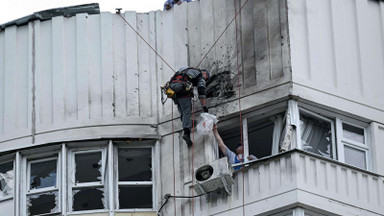Posted by BW Actual on May 31st 2023
BLACKWATER USA | DAILY BRIEF
Russia
- At least eight attack drones targeted civilian areas of Moscow for the first time yesterday. Their strikes didn't cause much physical damage - some windows were shattered and a few residents sustained minor injuries (Russia said all drones were intercepted) - but they brought a faraway war closer to home for the Russian residents of the capital.
- Ukrainian officials said Ukraine was not "directly involved" in the drone strikes but is "happy" to see Russia on the defensive at home.
- An embarrassed Pres. Putin blamed the attacks on "terrorist activity," while Wagner Group chief Yevgeny Prigozhin lashed out at Russia's military and political elite for failing to protect the capital.
- North Korea carried out the satellite launch it warned Japan about, but its new Chollima-1 launch rocket failed and sent its payload - which was probably the country's first spy satellite - into the sea. It's North Korea's first attempted satellite launch since 2016, and its sixth ever.
- The Malaysian coast guard detained a Chinese bulk cargo ship suspected of illegally scavenging the WWII UK Royal Navy wrecks HMS Prince to Wales and HMS Repulse, which were both torpedoed just after Pearl Harbor. The Chinese ship was carrying unexploded shells that Malaysian authorities believe came from one or both of those wrecks.
- Reuters reported that Qatar's Prime Minister held secret talks with Taliban supreme emir Haibatullah Akhunzada on May 12 in Kandahar. It would be Akhunzada's first known meeting with a foreign leader: he's likely seeking Qatar's recognition of his Taliban government.
- Post-election violence injured 25 NATO peacekeepers and around 50 Serbs in northern Kosovo. Ethnic Serbs in areas where they're the majority were protesting the recent election of ethnic Albanian "fake mayors." Serbia's president put his military on the highest level of combat readiness alert.
- Nigeria's new president, Bola Tinubu, is seeking to make good on his campaign promise to end fuel subsidies, which cost the government $10 billion last year. The last time Nigeria tried to end the subsidy - in 2012 - it led to angry protests that forced the government to reverse course and keep the subsidy in place.

